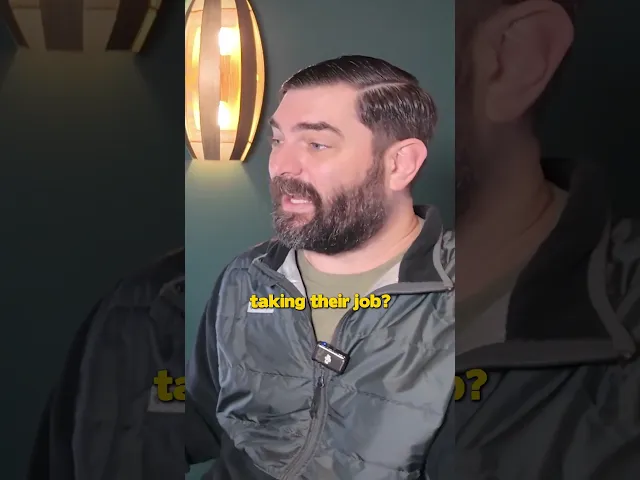Microsoft AI CEO on The Future of Work (Feat. Mustafa Suleyman)

AI will transform how we work
In Microsoft's latest interview, Mustafa Suleyman, CEO of Microsoft AI, shares his perspective on artificial intelligence's impact on our professional lives. The conversation dives into one of the most persistent concerns surrounding AI adoption: its potential to replace human jobs across various sectors, from coding to creative work.
Key insights from Suleyman:
- The nature of work will "change fundamentally" due to AI, representing a significant shift comparable to the introduction of personal computers 50 years ago
- This transformation will affect not just what work we do, but how and where we perform it
- New job categories are continuously emerging—Suleyman points to YouTubers and media personalities as roles that barely existed a decade ago
The historical context matters
The most compelling takeaway from Suleyman's perspective is his framing of AI as part of technological evolution's continuum rather than a singular disruption. By comparing AI's impact to how PCs transformed workflows from paper-based systems and snail mail, he normalizes what might otherwise seem like an alarming shift.
This historical lens matters tremendously. Every major technological revolution—from steam power to electricity to computing—initially triggered job displacement concerns. Yet each ultimately created more jobs than they eliminated, though often requiring different skills. The difference now is the potential speed and scope of AI-driven change, which appears to be accelerating beyond previous technological transitions.
What Microsoft's vision leaves out
While Suleyman provides a high-level perspective on job transformation, he doesn't address the transitional challenges. The move from paper to PCs took decades and was supported by massive educational initiatives and institutional adaptation. Today's workers may face more compressed timelines.
Consider the manufacturing sector: unlike previous automation waves that primarily affected repetitive physical tasks, generative AI can now impact knowledge workers previously considered immune to technological displacement. A 2023 McKinsey study suggested that approximately 30% of hours worked across the U.S. economy could potentially be automated by 2030, with banking, insurance, and legal services particularly exposed.
The geographic implications also deserve attention. Remote work accelerated by pandemic conditions demonstrated that physical location matters less for many knowledge workers. When combined with AI tools, this could create both opportunities (work from anywhere) and challenges (increased global competition for roles) that S
Recent Videos
How To Earn MONEY With Images (No Bullsh*t)
Smart earnings from your image collection In today's digital economy, passive income streams have become increasingly accessible to creators with various skill sets. A recent YouTube video cuts through the hype to explore legitimate ways photographers, designers, and even casual smartphone users can monetize their image collections. The strategies outlined don't rely on unrealistic promises or complicated schemes—instead, they focus on established marketplaces with proven revenue potential for image creators. Key Points Stock photography platforms like Shutterstock, Adobe Stock, and Getty Images remain viable income sources when you understand their specific requirements and optimize your submissions accordingly. Specialized marketplaces focusing...
Oct 3, 2025New SHAPE SHIFTING AI Robot Is Freaking People Out
Liquid robots will change everything In the quiet labs of Carnegie Mellon University, scientists have created something that feels plucked from science fiction—a magnetic slime robot that can transform between liquid and solid states, slipping through tight spaces before reassembling on the other side. This technology, showcased in a recent YouTube video, represents a significant leap beyond traditional robotics into a realm where machines mimic not just animal movements, but their fundamental physical properties. While the internet might be buzzing with dystopian concerns about "shape-shifting terminators," the reality offers far more promising applications that could revolutionize medicine, rescue operations, and...
Oct 3, 2025How To Do Homeless AI Tiktok Trend (Tiktok Homeless AI Tutorial)
AI homeless trend raises ethical concerns In an era where social media trends evolve faster than we can comprehend them, TikTok's "homeless AI" trend has sparked both creative engagement and serious ethical questions. The trend, which involves using AI to transform ordinary photos into images depicting homelessness, has rapidly gained traction across the platform, with creators eagerly jumping on board to showcase their digital transformations. While the technical process is relatively straightforward, the implications of digitally "becoming homeless" for entertainment deserve careful consideration. The video tutorial provides a step-by-step guide on creating these AI-generated images, explaining how users can transform...
